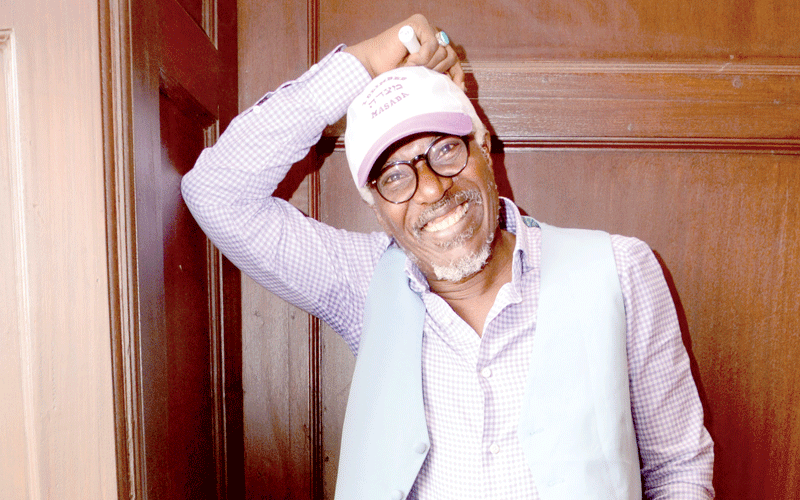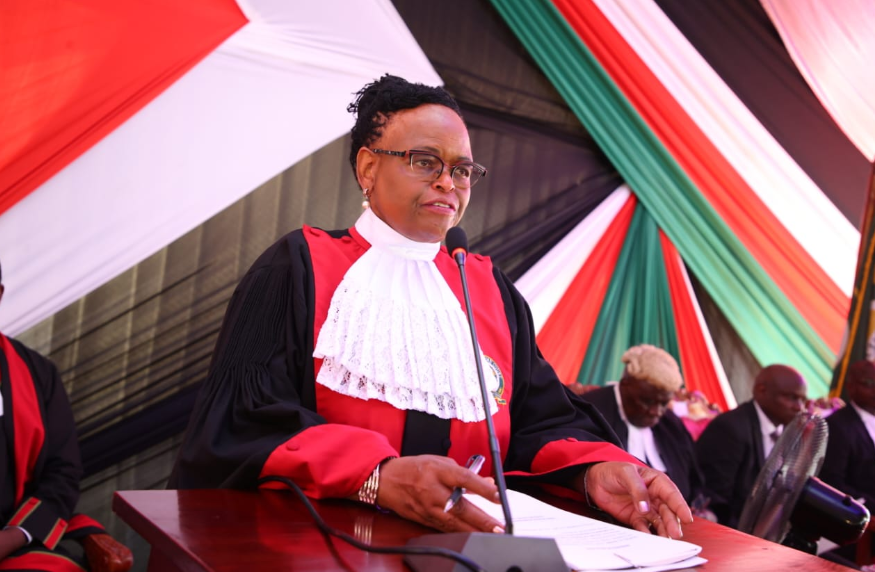Reggae brigadier: ‘African Bob Marley’, Ivorian reggae artiste Alpha Blondy

“Barouh atat Adonai” was like a clarion call as reggae legend Alpha Blondy took to the stage on Sunday at the Koroga Festival.
Barouh atat Adonai is Hebrew for ‘blessed are you, Lord’ and is a line from one of his biggest hits Jerusalem from his acclaimed album of the same name. The song was recorded in 1986 at Bob Marley’s Tuff Gong studios in Jamaica.
Born Seydou Koné in Côte d’Ivoire in 1953 to a Muslim father and a Christian mother, Blondy’s trip to Kenya last week became somewhat a space to clear the air on certain things.
Firstly, he apologised for not showing up on stage for a concert he was headlining alongside Jamaica’s Tarrus Riley and Demarco in Nairobi in 2016.
While he put the blame squarely on the promoters, he said during a press conference on Friday that it was something common in the music industry.
Secondly, he vehemently denied he is an American, declaring that he only has one passport, Ivorian. Thirdly, he was quick to remind everyone that as much as he was honoured to be referred to as ‘the African Bob Marley’, he was not.
“Bob Marley is Bob Marley. I am Alpha Blondy and my mission is to bring love and hope to the people,” he said.
Blondy’s humble nature is what endears him to his fans all over the world, something he revels in. He says meeting people in all his tours the world over, is always a learning session for him.
He says: “With every person I meet, I learn. I am a permanent learner. Every person will teach me something, so it has been positive for me to meet and talk to different people as it helps me build my own knowledge about my race.”
The beginnings
Blondy’s musical prowess dates as far back as the 1970s, releasing his first album titled Jah Glory in 1982.
It is from this album that featured the popular hit Brigadier Sabari, where he talks about police brutality from a personal experience.
It is one of his many songs in which he highlights social-political issues — things he does not shy away from talking about and pointing accusing fingers.
It is with such gusto that he condemned xenophobia in South Africa and asked the African Union and Heads of State to help South Africans to heal “because it is a deeply wounded country.”
As the United Nations (UN) Ambassador of Peace for Côte d’Ivoire since 2005, the singer is keen on spreading peace across the world, including for the people of Palestine, for whom he beseeched the world and the UN to remember and do something to end their more than 70 years of suffering.
Musically speaking, Blondy—who has 18 studio albums, eight compilation albums and two live albums—says his talent and energy comes from God. “I have no explanation.
If I give one, it would be wrong,” he said, adding that his life was planned and pre-planned by God and he has a divine mission to give hope and unity through music.
Hope in young generation
It was music that saw him kicked out of school in 1972 due to poor attendance, but he went ahead to study English in neighbouring Liberia and later to the US where he studied in Hunter College and Columbia University.
He does not regret his expulsion, but is quick to warn the current generation that education is important.
“We were all not made to be successful at school. When you are a dummy, you are dummy and I was the best dummy at school.
But maybe my destiny was to get into this musical field and to make a living out of it. I am lucky I was kicked out of school, but I do not advise that to the younger generation,” he said.
Although many people are concerned about the fading of the roots-reggae style of music, Blondy is not a worried man.
He is glad about what the younger generation is doing with dancehall and the infusion of new styles into reggae.
“As human beings, music evolves. Dancehall, ragga, all these things are branches of reggae, and it is good.
Maybe those who do not like reggae music with message, they might love ragga or dancehall, and I love that diversity,” he added.
But for him, it is important for the young generation to take their craft seriously. “Take your job seriously because some time in Africa, they do not take musicians seriously. They think they are jokers.
It is a job! You can make a living out of it: you can buy a jet, build a house for you and your parents out of it,” he concludes.
The 2003 Grammy Award nominee’s latest album Human Race was released in 2018. He married his wife Aelyssa Darragi in May 2019 and their child is about three-months-old now.
Although he prefers not to talk about his personal life, Blondy says his aspirations are to continue teaching the masses through his music and performances for as long as he can.
He’s scheduled to tour Europe (with concerts in France and Belgium) this October, and the US in November.









